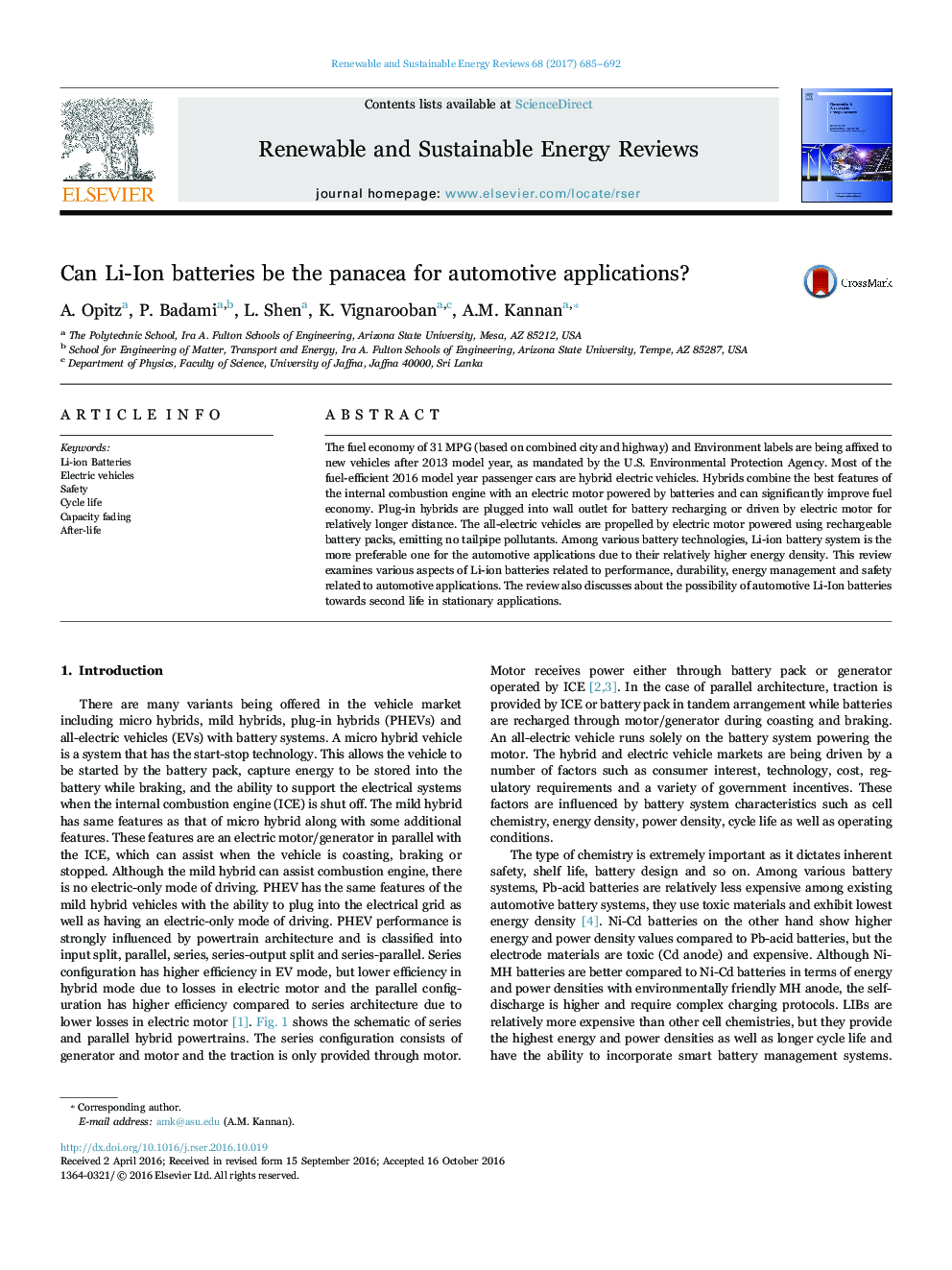| Article ID | Journal | Published Year | Pages | File Type |
|---|---|---|---|---|
| 5482699 | Renewable and Sustainable Energy Reviews | 2017 | 8 Pages |
Abstract
The fuel economy of 31 MPG (based on combined city and highway) and Environment labels are being affixed to new vehicles after 2013 model year, as mandated by the U.S. Environmental Protection Agency. Most of the fuel-efficient 2016 model year passenger cars are hybrid electric vehicles. Hybrids combine the best features of the internal combustion engine with an electric motor powered by batteries and can significantly improve fuel economy. Plug-in hybrids are plugged into wall outlet for battery recharging or driven by electric motor for relatively longer distance. The all-electric vehicles are propelled by electric motor powered using rechargeable battery packs, emitting no tailpipe pollutants. Among various battery technologies, Li-ion battery system is the more preferable one for the automotive applications due to their relatively higher energy density. This review examines various aspects of Li-ion batteries related to performance, durability, energy management and safety related to automotive applications. The review also discusses about the possibility of automotive Li-Ion batteries towards second life in stationary applications.
Related Topics
Physical Sciences and Engineering
Energy
Renewable Energy, Sustainability and the Environment
Authors
A. Opitz, P. Badami, L. Shen, K. Vignarooban, A.M. Kannan,
